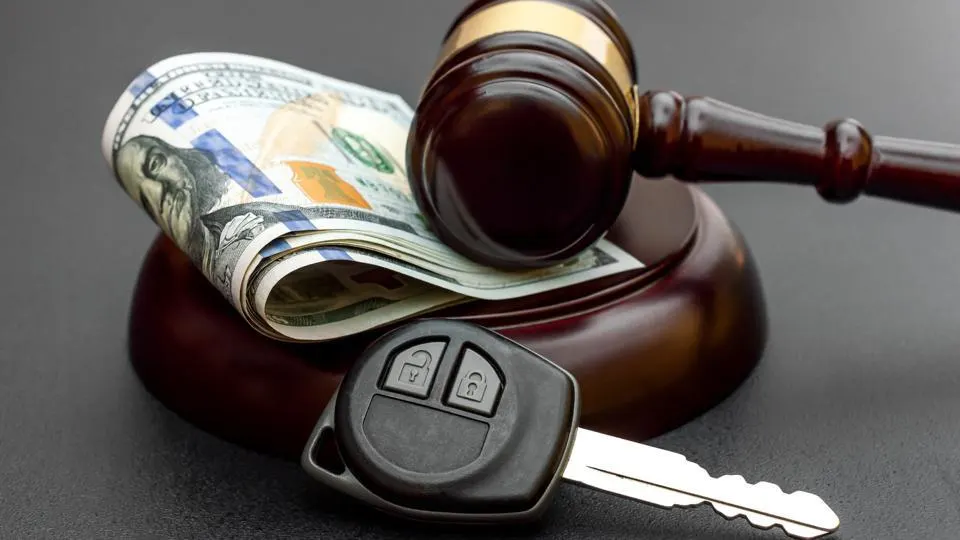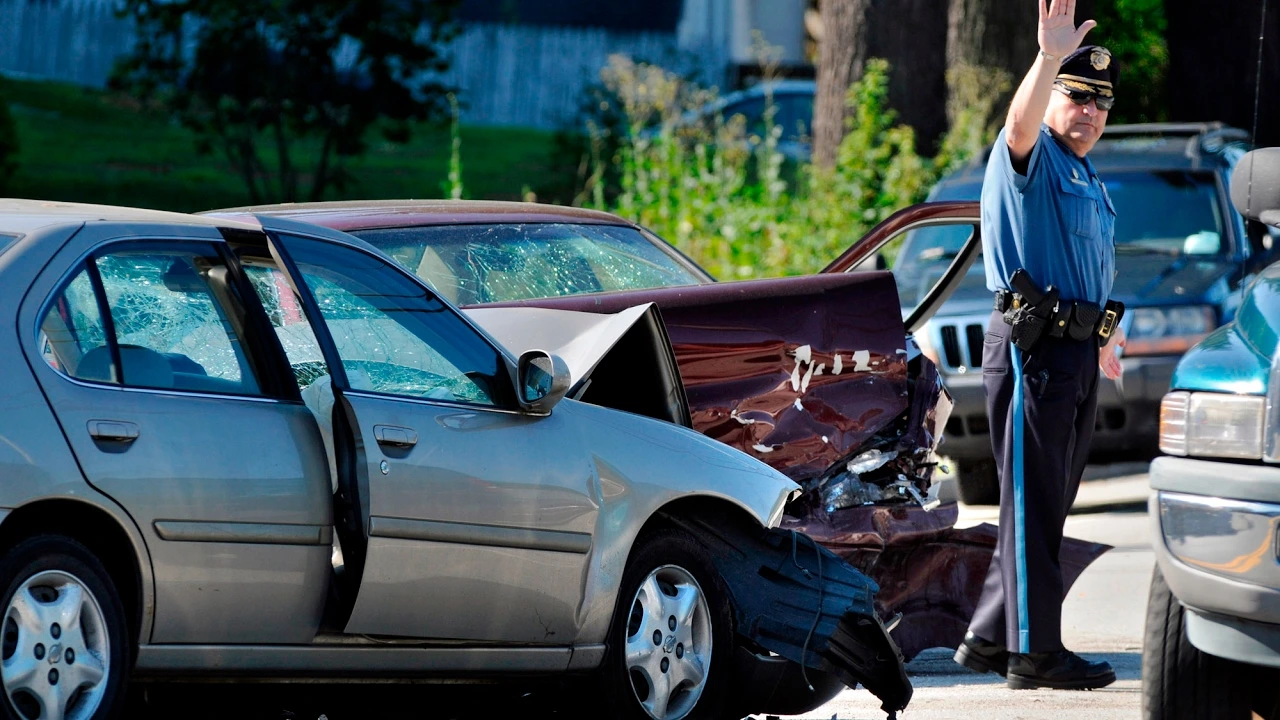One of the first questions many accident victims ask is, “How much does a car accident lawyer cost in Virginia?” The answer matters, not just for your budget, but for your ability to get fair compensation after a crash.
In Virginia, the fear of high legal fees sometimes stops people from getting the help they need. Many assume hiring a lawyer means paying thousands of dollars upfront. In reality, most car accident attorneys in the state work on a contingency fee basis, meaning they only get paid if you win or settle your case.
Understanding how these fees work, what expenses may come up, and how Virginia’s legal rules affect the process can help you make an informed choice. This guide breaks down the typical costs, the factors that influence them, and why the value of a skilled lawyer often outweighs the expense, especially in a state with strict contributory negligence laws.

Table of Contents
- Common Fee Structures for Car Accident Lawyers
- Contingency Fee Basics in Virginia
- Factors That Affect the Percentage
- Case Expenses Beyond Attorney Fees
- When You Might Pay Out of Pocket
- Virginia-Specific Rules and Ethical Guidelines
- Value of a Lawyer vs. the Cost
- How to Discuss Fees with a Lawyer Before Hiring
- Tips for Choosing the Right Car Accident Lawyer in Virginia
- Final Thoughts
- FAQs: How Much Does a Car Accident Lawyer Cost in Virginia?
Common Fee Structures for Car Accident Lawyers
Car accident lawyers in Virginia typically use one of three fee structures, though contingency fees are by far the most common in personal injury law. Understanding each model helps you evaluate offers and avoid surprises later.
1. Contingency Fees (Most Common)
- The lawyer’s payment is a percentage of the settlement or court award.
- No upfront payment is required.
- If you don’t win or settle, you usually owe nothing for attorney fees (though you may still owe certain case expenses, covered later).
- Common for injury cases because clients often face medical bills and lost income right after the accident.
2. Hourly Rates (Rare for Car Accident Cases)
- You pay for every hour the lawyer spends on your case.
- More common in business, contract, or certain high-stakes litigation.
- In car accident cases, this is rare because injury victims often can’t afford ongoing hourly billing while recovering.
3. Flat Fees (Uncommon for Accident Representation)
- One fixed price for a defined service.
- Sometimes used for limited-scope legal work, like reviewing a settlement offer or drafting a demand letter without ongoing representation.
- Rare for full accident cases because damages and timelines can vary widely.
Bottom line: In Virginia, over 90% of car accident injury claims are handled under contingency agreements, which means cost should not be the main barrier to hiring a lawyer.
Contingency Fee Basics in Virginia
A contingency fee means your lawyer’s payment depends on the outcome of your case. If you win or settle, they get a set percentage of the total recovery. If you lose, they don’t get paid for their time, though you may still owe certain expenses if your agreement says so.
Typical Percentages
- 33.33% (one-third) is standard for cases resolved before filing a lawsuit.
- 40% or slightly higher may apply if a lawsuit has to be filed or the case goes to trial or appeal.
- Some firms use sliding scales, e.g., one-third (33.33%) if settled early, 40% if a lawsuit is filed.
Example Calculations
- If you settle for $60,000 and your contingency fee is one-third (33.333%), your lawyer receives $20,000 plus reimbursement for case expenses.
- If you win $100,000 at trial with a 40% fee, your lawyer gets $40,000 before expenses are deducted.
Why Percentages May Vary
- Case complexity: Multi-vehicle collisions, disputed liability, or severe injuries require more time and resources.
- Risk level: If the case is uncertain, the lawyer may charge a higher percentage to offset the risk of no payment.
- Stage of resolution: Going to trial or appeal requires significantly more preparation and resources.
Virginia Bar Requirements
- Contingency fee agreements must be in writing and signed by the client.
- The agreement must clearly state the percentage, how expenses are handled, and when fees are payable.
Key takeaway: In Virginia, contingency fees allow accident victims to get experienced legal help without paying upfront, but you must read the fine print to understand total costs.
Factors That Affect the Percentage
While contingency fees in Virginia often fall between 33% and 40%, several factors can push your lawyer’s percentage higher or lower.
1. Case Complexity
- Multi-vehicle accidents or crashes involving commercial trucks often require accident reconstruction experts, multiple depositions, and more investigation.
- Cases with disputed liability under Virginia’s contributory negligence rule require extra work, because the defense only needs to prove you were 1% at fault to bar recovery.
2. Severity of Injuries
- Catastrophic injuries or wrongful death claims involve higher stakes, larger medical evidence files, and often more aggressive defense tactics, increasing the time and resources your lawyer must commit.
3. Litigation Stage
- Pre-lawsuit settlement: Usually one-third (33.33%) if resolved quickly.
- Post-filing/trial: Often 40% or more due to increased work (jury selection, expert testimony, trial preparation).
4. Risk and Likelihood of Recovery
- If the case has unclear liability or limited insurance coverage, the lawyer takes on more risk, which may justify a higher percentage.
5. Specialization and Experience
- Highly experienced attorneys or firms with a strong track record in Virginia personal injury cases may charge slightly higher percentages, reflecting their higher success rate and expertise.

Case Expenses Beyond Attorney Fees
Even under a contingency arrangement, you may still be responsible for case expenses, costs the lawyer or firm incurs to build and pursue your claim. These are separate from the attorney’s percentage fee.
Common Case Expenses
- Court filing fees: To initiate a lawsuit in Virginia courts.
- Expert witness fees: For accident reconstructionists, medical specialists, or economists.
- Medical record costs: Hospitals and providers often charge per page or a flat retrieval fee.
- Deposition costs: Court reporter and transcript fees.
- Investigation expenses: Private investigators, site visits, or crash scene reconstructions.
- Exhibit preparation: Enlarged photos, charts, or digital reconstructions for trial.
Who Pays and When
- Many Virginia personal injury lawyers front these costs and recover them from the settlement or verdict.
- Some require partial payment during the case; rare, but possible with high-cost expert testimony.
- The fee agreement must explain whether you owe these costs if you lose.
Example
If your case settles for $50,000, your lawyer’s contingency fee is one-third (33.33)% ($16,666), and case expenses are $2,000, you would receive:
$50,000 – $16,500 – $2,000 = $31,334 net.
When You Might Pay Out of Pocket
Most Virginia car accident cases use contingency fees, so attorney fees are paid only from a recovery. Even so, there are situations where money can come from you directly or your net recovery can be reduced more than you expect.
1) If you change lawyers mid-case
- Your first lawyer may claim a charging lien on the future settlement for the reasonable value of work already performed (quantum meruit).
- Practically, your new lawyer and prior lawyer often split the same contingency, but if there is a dispute, it can affect timing and your net.
2) Case expenses if there’s no recovery
- Many Virginia firms advance costs (filing fees, medical records, experts) and recoup them only if you win.
- Some agreements say you owe costs win or lose. Read this clause closely so you are not surprised by bills for experts or transcripts after an unsuccessful case.
3) Upfront payments for limited-scope help
- If you hire a lawyer only to review a release, draft a demand, or give a second opinion, they may charge a flat or hourly fee that is due when services are rendered.
4) Termination before resolution
- If you fire your lawyer just before an offer arrives or litigation milestones occur, you may owe case costs to date under your contract, and your next lawyer may require you to cover certain immediate expenses (e.g., expert retainers).
5) Medical record and lien issues
- Providers can charge to copy records and bills.
- If health insurers or government programs (Medicare/Medicaid) paid your treatment, they may assert reimbursement liens that come out of your settlement. These are not attorney fees but they impact your take-home amount.
6) Sanctions or court-ordered costs (rare)
- If a party disobeys discovery orders or fails to appear, a court can impose costs/fees. This is uncommon in injury cases, but your engagement agreement should clarify who is responsible if it happens.
Bottom line: Ask two questions before you sign:
“If we lose, do I owe any money for costs?”
“Are costs deducted before or after the contingency percentage is applied?”
Clear answers here prevent most fee surprises.
Virginia-Specific Rules and Ethical Guidelines
Virginia attorneys must follow the Virginia Rules of Professional Conduct, which set guardrails around fees, costs, and how agreements are written.
Written contingency agreements
- Rule 1.5(c) requires contingency fees to be in writing and signed by the client.
- The agreement must state the percentage, whether it changes by stage (pre-suit, trial, appeal), and how expenses will be handled, including whether the client owes costs regardless of outcome.
Reasonableness of fees
- Rule 1.5(a) requires all fees to be reasonable based on factors like time, labor, novelty, results obtained, customary charges, and risk of nonpayment.
No contingency in certain matters
- Contingency fees are prohibited in criminal cases and in most domestic relations matters (e.g., securing a divorce or amount of support). They are allowed in personal injury cases.
Fee sharing between lawyers
- Rule 1.5(e) permits division of fees between lawyers not in the same firm if:
- The client is informed of the arrangement (including shares or the basis of division),
- The total fee is reasonable.
- In practice, this governs splits when you switch lawyers or when a case is referred.
Advance fees and trust accounts
- Rule 1.15 requires lawyers to keep unearned advances and cost retainers in a trust (IOLTA) account and to withdraw funds only as fees are earned or costs incurred. “Nonrefundable” fee labels do not override trust-account duties.
Closing statement and disbursement
- At resolution, you are entitled to a settlement statement that itemizes:
- Gross recovery
- Attorney’s fee
- Itemized costs (records, experts, filings)
- Lien payments (health insurers, providers, Medicare/Medicaid)
- Net to client
- Ask for this in writing and keep it with your records.
Attorney’s lien statute
- Under Virginia law (commonly referenced as the attorney’s lien statute), a lawyer can secure payment for services from the proceeds of the cause of action. This is why fee disputes are usually settled from the settlement funds, not out of your pocket beyond the recovery.
Practical tip: Request a draft fee agreement before your consultation ends. Read:
- The contingency percentages by stage,
- Exactly how and when costs are deducted,
- Whether you owe costs if there’s no recovery,
- What happens if you change lawyers.

Value of a Lawyer vs. the Cost
Many accident victims focus solely on the percentage their lawyer will take, but the real question is whether a lawyer increases your net recovery after fees and expenses. In Virginia, where contributory negligence rules can bar recovery entirely, an experienced lawyer can mean the difference between receiving full compensation or nothing at all.
1. Higher Settlements
- Studies consistently show that represented claimants receive significantly higher settlements than those who handle claims alone, even after attorney fees are deducted. This is especially true in cases where liability is contested or damages are substantial.
2. Protection from Contributory Negligence Pitfalls
- In Virginia, being just 1% at fault can eliminate your claim. Lawyers know how to gather evidence, frame your case, and challenge the defense’s attempts to shift blame.
3. Negotiating with Insurance Companies
- Insurers often make low initial offers, especially when they sense a claimant is unrepresented. Lawyers know claim valuation, negotiation tactics, and when to push toward trial.
4. Handling Complex Damages
- Calculating lost earning capacity, future medical costs, and non-economic damages requires expertise. A lawyer works with medical and financial experts to ensure nothing is left out.
5. Reducing Stress and Errors
- The claims process involves strict deadlines, detailed documentation, and legal rules. An attorney handles these so you can focus on recovery.
Bottom line: The cost of a lawyer is an investment that often increases, rather than decreases, what you take home.
How to Discuss Fees with a Lawyer Before Hiring
Transparent communication about fees is critical. Here’s how to approach it during your initial consultation:
1. Ask About the Contingency Percentage and When It Changes
- What’s the percentage if settled before suit?
- What’s the percentage if it goes to trial or appeal?
2. Clarify Case Expenses
- What types of expenses will be incurred?
- Are they deducted before or after calculating the attorney’s percentage?
- Will I owe these costs if I lose?
3. Understand Fee Adjustments for Changing Lawyers
- If I change representation, how will fees be handled?
- Will my old and new lawyers split the original percentage, or could I be charged more?
4. Ask About Typical Recovery Ranges
- While no lawyer can promise a specific result, they can give examples of past similar cases.
- This helps you weigh potential recovery against the projected costs.
5. Get the Fee Agreement in Writing Before Signing
- Virginia law requires this, but reviewing it carefully ensures you understand every term.
- Don’t hesitate to request changes or clarifications before committing.
Tip: A reputable Virginia personal injury lawyer will welcome these questions. Avoid any lawyer who is vague, rushes you, or refuses to explain their fee structure.
Tips for Choosing the Right Car Accident Lawyer in Virginia
Selecting the right lawyer is about more than finding the lowest fee percentage. The right attorney will maximize your outcome, manage your case efficiently, and give you confidence in every decision.
1. Look for Experience with Virginia Accident Law
- Virginia’s contributory negligence rule and insurance claim process require deep knowledge.
- Ask how many Virginia car accident cases they’ve handled in the last year and the results.
2. Check Track Record for Settlements and Trials
- Some lawyers focus on quick settlements; others are ready to go to trial.
- Ask about trial experience, especially if your case involves disputed liability or high damages.
3. Evaluate Communication Style
- Do they respond quickly to calls or emails?
- Will you speak primarily with the lawyer or be passed to a paralegal?
4. Transparency on Fees
- A trustworthy lawyer will clearly explain contingency percentages, case expenses, and payment timing.
- Avoid lawyers who are vague or resist putting everything in writing.
5. Read Reviews and Ask for References
- Check the Virginia State Bar’s website for any disciplinary actions.
- Look at independent reviews for client satisfaction patterns.
Pro tip: Schedule consultations with at least two lawyers before deciding. Compare their fee terms, experience, and strategy for your case.
Final Thoughts
Understanding how much a car accident lawyer costs in Virginia is about more than knowing a percentage. It’s about weighing the cost of representation against the risk of going it alone in a state with some of the nation’s strictest negligence laws.
In most cases, contingency fees mean you can get skilled legal help without paying upfront, and the right lawyer will often secure a settlement or verdict that more than covers their fee. The key is to choose an attorney who is transparent about costs, experienced in Virginia law, and committed to fighting for your best outcome.
Before signing any agreement, ask the right questions, read the fee contract carefully, and understand how expenses are handled. With the right representation, the “cost” of a lawyer becomes an investment in protecting your rights and maximizing your recovery.

FAQs: How Much Does a Car Accident Lawyer Cost in Virginia?
Q1: Is it worth hiring a lawyer for a minor accident?
Yes, if there are injuries, disputed fault, or high repair bills, a lawyer can protect you from contributory negligence issues and low settlement offers.
Q2: Do I pay if I lose my case?
Usually no attorney fees under a contingency arrangement, but you may owe case expenses if your agreement requires it.
Q3: Can I negotiate the contingency fee?
Sometimes. Some lawyers may adjust percentages for straightforward cases, early settlements, or if you have strong evidence.
Q4: How do lawyers get paid if the other driver is uninsured?
They pursue compensation from your uninsured motorist coverage, the at-fault driver’s personal assets (rarely successful), or other liable parties.
Q5: Will hiring a lawyer delay my settlement?
Not necessarily. In fact, lawyers often move cases forward faster because they know deadlines, processes, and negotiation strategies.
Latest Posts
How Much Does a Car Accident Lawyer Cost in Virginia?
One of the first questions many accident victims ask is, "How much does a car accident lawyer cost in Virginia?" The answer matters, not just for your...
How Much Does a Car Accident Lawyer Cost in Virginia?
Should I Get a Lawyer for a Minor Car Accident in Virginia?
If you have been in a low-speed collision or fender bender, you might be wondering: Should I get a lawyer for a minor car accident in Virginia? Many...
